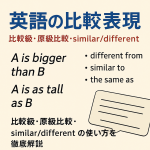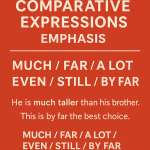
must have + (動詞の過去分詞形)、might have + (動詞の過去分詞形)、can’t have + (動詞の過去分詞形)の使い方について解説します。
まずは例文から見ていきましょう。
An earthquake? That must have been terrifying!
地震があったの? 恐ろしかったことでしょう。
We don’t know for sure that Alex broke the coffee table. It might have been the dog.
私たちはアレックスがコーヒーテーブルを壊したかどうかわかりません。もしかしたら犬の仕業かもしれません。
How did she fail that exam? She can’t have studied very much.
どうして彼女は試験に落ちたの?彼女はちゃんと勉強しなかったのだろう。
Must have、might have、can’t haveは、その情報がどこまで信用できるのかどうかの度合いによって使い分けます。
must have + 動詞の過去分詞形
Must have + (動詞の過去分詞形)は、その情報がほぼまちがいないときに用いられる。
<例文>
Who told the newspapers about the prime minister’s plans? It must have been someone close to him.
新聞社に総理大臣の計画を話したのは誰? 彼と近しい関係の人に決まっている。
The thief must have had a key. The door was locked and nothing was broken.
泥棒はまちがいなく鍵を持っていた。ドアは鍵がかかっていたし、何もこわれていなかった。
Oh, good! We’ve got milk. Jane must have bought some yesterday.
あーよかった。ミルクがある。ジェーンが昨日買っておいてくれたんだ。
might have / may have + 動詞の過去分詞形
might have + (動詞の過去分詞形)とmay have + (動詞の過去分詞形)は、その情報がたぶん本当だろうというときに用いられる。
may haveのほうがフォーマルな表現となる。
I think I might have left the air conditioning on. Please can you check?
エアコンがつきっぱなしかもしれない。確認してくれない。
Police think the suspect may have left the country using a fake passport.
容疑者が偽のパスポートをつかって国外に逃亡したと警察はみている。
can’t have / couldn’t have + 動詞の過去分詞形
can’t have + (動詞の過去分詞形)とcouldn’t have + (動詞の過去分詞形)は、その情報が本当である可能性がほとんどない場合に用いられる。
She can’t have driven there. Her car keys are still here.
彼女は車では行っていない。車の鍵はまだここにある。
I thought I saw Adnan this morning but it couldn’t have been him – he’s in Greece this week.
今朝アドナンを見たと思ったけど、彼であるはずがない。彼は今週ギリシャにいる。
以上で解説は終了です。










Comments